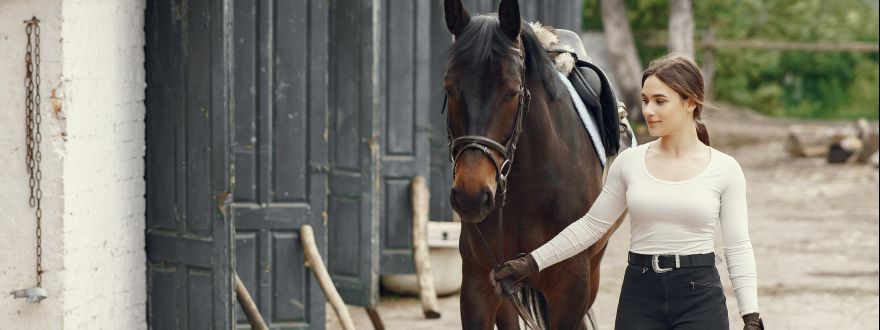
Safeguarding Your Stable: The Importance of Equine Liability Insurance
Introduction:
Owning and operating an equestrian facility or horse-related business is a rewarding venture, but it comes with its own set of challenges and responsibilities. One crucial aspect of managing these risks is securing Equine Liability Insurance. In this blog post, we'll explore the significance of Equine Liability Insurance, its key components, and why it's a must-have for anyone involved in the equine industry.
Understanding Equine Liability Insurance:
Equine Liability Insurance is designed to protect horse owners, riding instructors, stable owners, and other equine professionals from the financial consequences of accidents or injuries involving horses. Whether you offer riding lessons, boarding services, or horse training, this type of insurance provides coverage for legal expenses, medical bills, and other liabilities that may arise due to horse-related incidents.
Key Components of Equine Liability Insurance:
1. **Third-Party Liability Coverage:**
Equine Liability Insurance typically covers bodily injury or property damage caused by horses to third parties. This includes visitors, clients, or anyone who may come into contact with the horses on your property.
2. **Coverage for Horse-Related Activities:**
The insurance extends to various horse-related activities, such as riding lessons, horse shows, competitions, and trail rides. It is essential to ensure that the policy adequately covers all the activities conducted on your premises.
3. **Care, Custody, and Control Coverage:**
This component provides protection for the horses under your care. It covers injury, theft, or damage to horses that are owned by others but are in your custody or control.
4. **Medical Payments Coverage:**
Equine Liability Insurance may include coverage for medical expenses incurred by individuals who are injured while participating in horse-related activities on your property.
5. **Legal Defense Costs:**
In the event of a lawsuit, the insurance can help cover the costs of legal defense, including attorney fees and court expenses.
Why Equine Liability Insurance is Essential:
1. **Risk Mitigation:**
Accidents can happen, and horses, being large and powerful animals, carry inherent risks. Equine Liability Insurance helps mitigate these risks by providing financial protection in the event of injuries or property damage.
2. **Legal Protection:**
Lawsuits arising from horse-related incidents can lead to significant financial burdens. Equine Liability Insurance not only covers potential damages but also provides legal defense, saving you from the hefty costs associated with legal proceedings.
3. **Professional Image:**
Having Equine Liability Insurance demonstrates a commitment to the safety and well-being of clients, visitors, and horses. It enhances your professional image and builds trust among your clientele.
Conclusion:
Equine Liability Insurance is a crucial investment for anyone involved in the equine industry. It not only safeguards your financial interests but also contributes to a safer and more secure environment for all involved parties. By understanding the key components and the importance of this insurance, you can protect your business, reputation, and, most importantly, the well-being of everyone interacting with these majestic animals.



